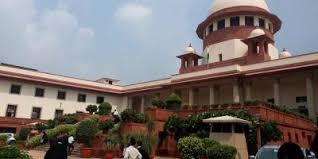Relying upon Section 25-H of the Industrial Disputes Act, 1947 it was held that there is no retrenchment since the nonrenewal of fixed term contract did not amount it to be so as provided under Section 2(oo)(bb) of the said Act. Thus, there was no question of re-employment of the concerned workmen. (Para 2)
Which is the Appropriate Authority empowered to issue the Standing Order(s) under the Industrial Employment (Standing Orders) Act, 1946 (hereinafter referred to as ‘The Act’)? – Whether private agreement/settlement between the parties would override the Standing Order? (Para 3)
Insofar as the Respondent Company is concerned, the appropriate Government is clearly not the Central, but the State Government since the Respondent is not, within the meaning of Section 2(b), under the control of the Central Government. The present case falls under the latter part of the section; thus, the appropriate Government means the State Government. The Bombay Model Standing Order would be applicable to the parties. (Para 5)
On various occasions, this Court has observed that the certified standing orders have a statutory force. The Standing Order implies a contract between the employer and the workman. Therefore, the employer and workman cannot enter into a contract overriding the statutory contract embodied in the certified Standing Orders. (Para 7)
The High Court, while upholding the order of the CGIT, held that the mere completion of 240 days would not entitle the members to claim permanency under the Model Standing Order given the settlement and, more specifically, Clause 18 thereof. It further observed that the Model Standing Order is not a statutory provision but, at best, a statutorily imposed condition of service that a settlement or award can alter. (Para 13)
On all counts, we respectfully disagree with the findings of the Tribunal and the High Court. (Para 14)
A cumulative reading of aforesaid clauses reveals that a workman who has worked for 240 days in an establishment would be entitled to be made permanent, and no contract/settlement which abridges such a right can be agreed upon, let alone be binding. The Act being the beneficial legislation provides that any agreement/contract/settlement wherein the rights of the employees are waived off would not override the Standing Orders. (Para 16)
Learned counsel for the Respondent has appraised this Court of the insolvency proceedings initiated against the Respondent Company under the Insolvency and Bankruptcy Code, 2016. However, we refrain from commenting thereupon, for it does not bear any consequence to the present lis and neither was it a subject matter of adjudication before the courts/authorities below. (Para 17)
Given the above discussions, we allow the appeal holding the Appellant-Union entitled to all benefits per the Bombay Model Standing Order. The award dated 30.03.2017 passed by CGIT in Reference No. CGIT-2/56 of 2013 and the judgment dated 10.01.2018 passed by the High Court of Judicature at Bombay in Writ Petition No. 2657 of 2017 affirming the same are quashed and set aside. (Para 18)
SUPREME COURT JUDGMENT
Citation: 2023 STPL(Web) 86 SC
Bharatiya Kamgar Karmachari Mahasangh Vs. M/S. Jet Airways Ltd.
Civil Appeal No. 4404 of 2023 (Arising out of SLP(C) No. 14886 of 2023)-Decided on 25-7-2023
https://stpllaw.in/wp-content/uploads/2023/07/2023-STPLWeb-86-SC.pdf







